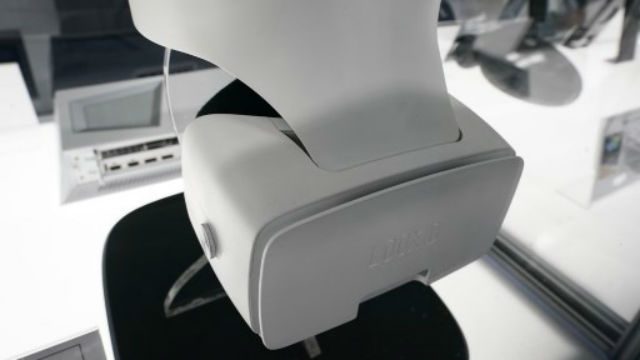SUMMARY
This is AI generated summarization, which may have errors. For context, always refer to the full article.

Tech’s biggest trade show this year will be happening this week in Las Vegas from January 9 to 12. The Consumer Electronics Show celebrated its 50th trade show last year, where we saw big brands take on the rising and overwhelming market of smart home technology, robots, and self-driving cars. This year will highlight the same overarching theme that is artificial intelligence, but because of the rapid advances in AI, we can expect even smarter devices to enter the market.
Here are some of the big trends that are predicted to generate some buzz on CES this 2018.
More and more like a car show
This year’s CES may look a little bit like a car show with more manufacturers exhibiting their takes on smart, driverless vehicles. To ring in the new year, Toyota announced that it will unveil on CES 2018 its next-generation prototype Lexus LS 600hL that runs on Platform 3.0. According to Toyota, this should set the tone in the smart car market in terms of both function and style. The prototype features more discreet cameras and sensors on top, though not completely out of view.
In this world of thinning televisions and laptops, it would be laughable to transport ourselves in something that looks like Ecto-1. With Toyota pushing the importance of keeping a Lexus sedan stylish and luxurious, we may see more manufacturers use the same strategy to compete in the driverless car market.
More augmented reality wares
The price tag attached to Virtual Reality is taking away the technology’s adoption and market realization. Gadgets and software are still also zoned in on gaming, keeping itself in a niche market that’s yet to experience any big titles pouring over into the mainstream. Augmented Reality (AR), on the other hand, has shown more promise in terms of penetrating the consumer market. CES is the perfect platform for new and old players to show off AR wares and their potential. We can expect more glasses and gizmos that take us closer to the dystopian future portrayed in Black Mirror.
But we can also expect a lot of hyped-up products to only get their fifteen minutes on CES and kind of lay low by the end of the year and never hit the stores. Lack of funding for research and development, as well as the dissipating follow-up enthusiasm will often halt promising prototypes from making it to the market.
The world will get by with voice assistance
2017 was the year of Alexa, but many will also argue that Google’s nameless Assistant took on a significant market share. The popularity of the voice user interface will only rise as more everyday gadgets are being upgraded to be compatible with voice assistants. It’s possible that this year, Alexa and its counterparts are more ready to take on the global market, as we see continuous improvements with accent bias and natural language processing.
With voice assistance, we often wonder if a) we like talking to technology and b) we like the new kind of convenience they bring to our lives. No one wants to be saying “Hey Google” for the next few years just to beckon their digital assistants, so a little customization will go a long way for many users. Perhaps other than more rampant and seamless integration with washing machines and refrigerators, we can expect these assistants to offer further conveniences other than locking doors and playing from Spotify.
Ultra high-speed connections (5G)
Telecommunications giants like Ericsson, Qualcomm, and Nokia will be headlining the 5G talks this year. With the advent of smart cities and more pervasive use of the Internet of Things (IoT), faster and more stable connections will become a fundamental requirement.
If smart cars are going to be running the roads and working with smart traffic systems, there’s a greater need for robust and reliable network architectures. 5G technology and deployment strategies are still pretty vague now, but perhaps we can expect telcos to give us some timelines and shed some light on the overall direction of the up and coming wireless broadband technology. – Rappler.com
Add a comment
How does this make you feel?
There are no comments yet. Add your comment to start the conversation.